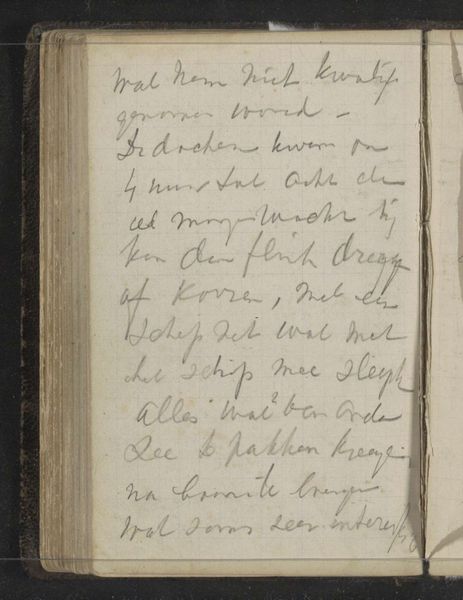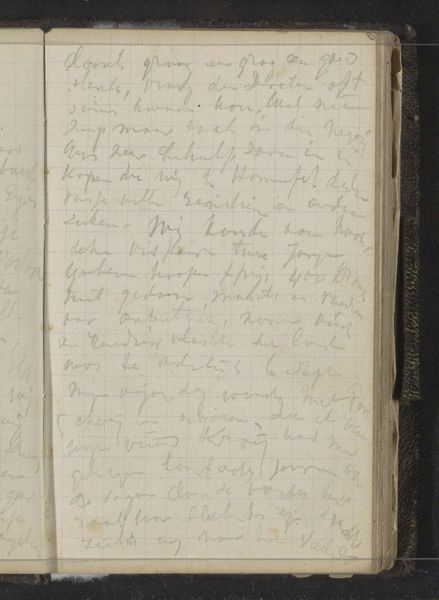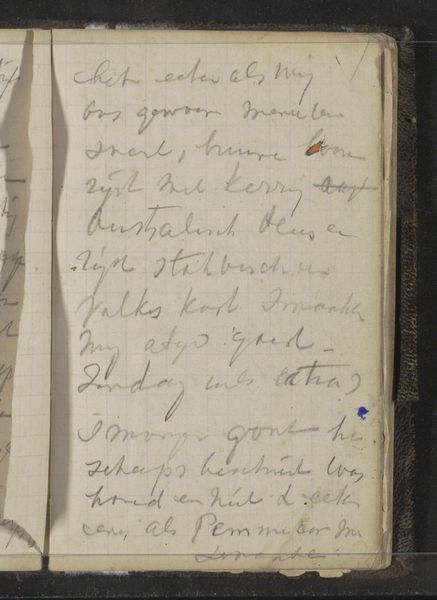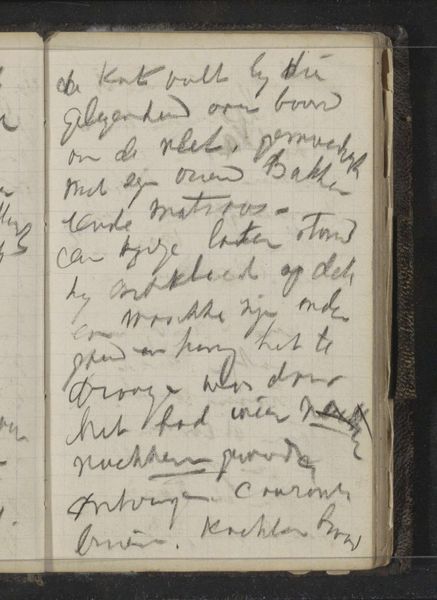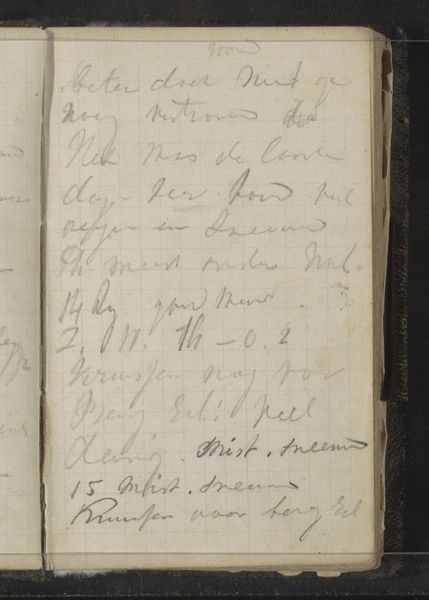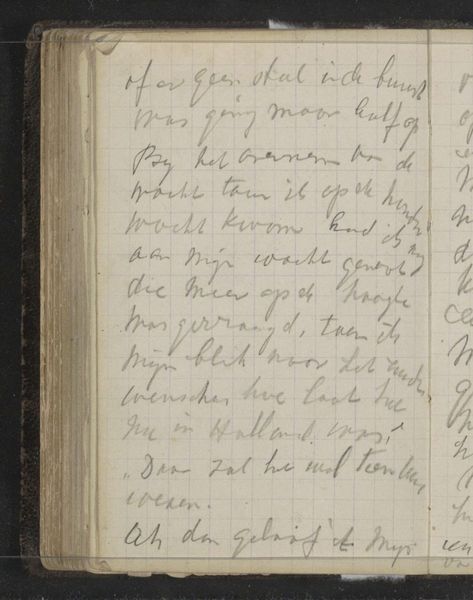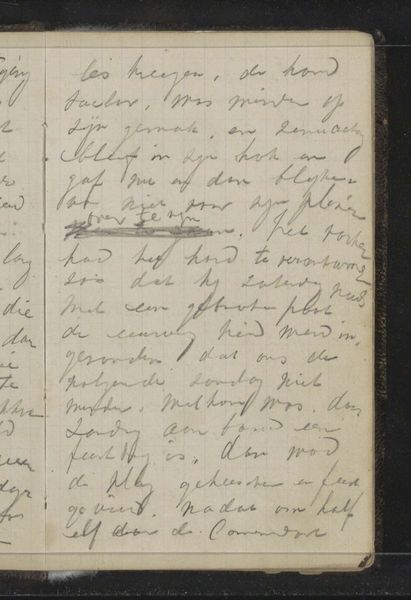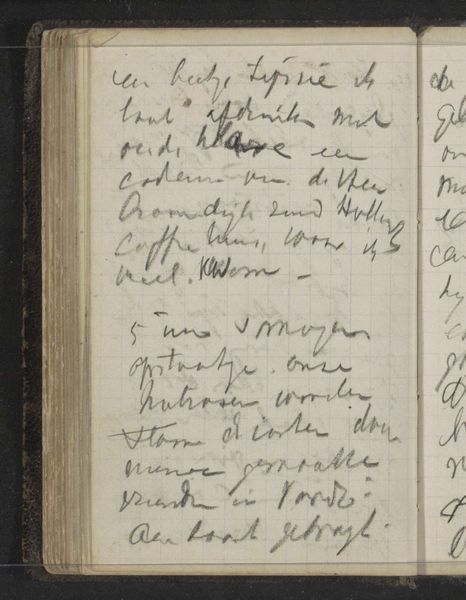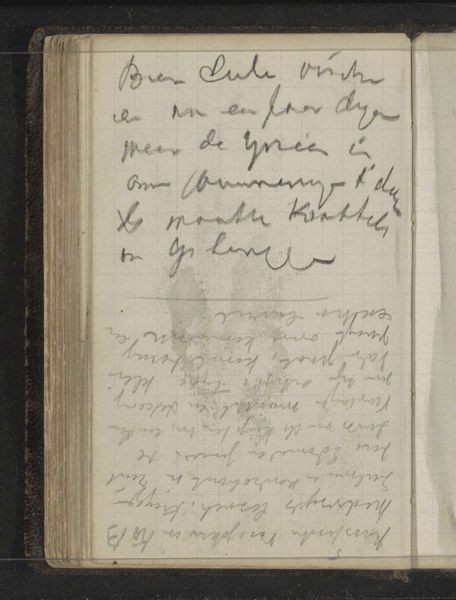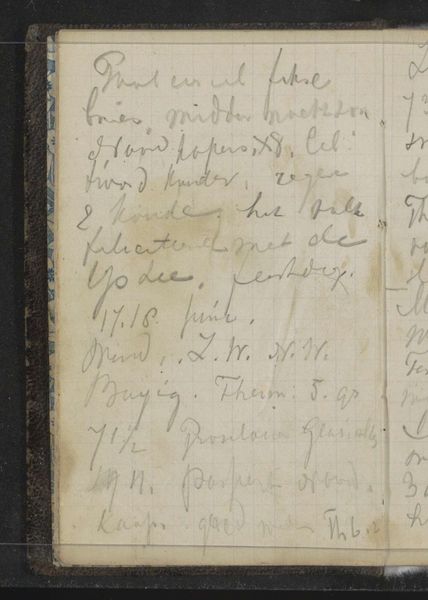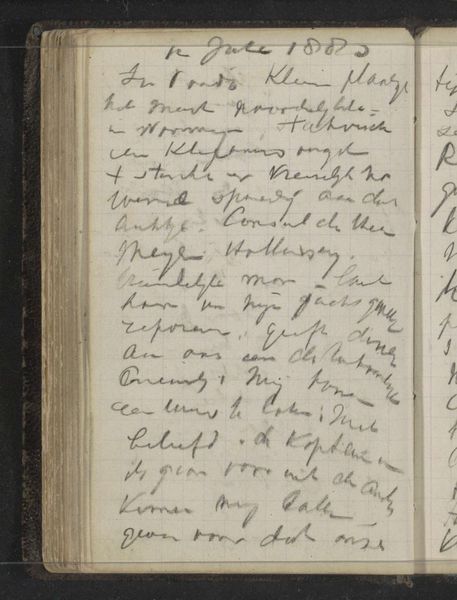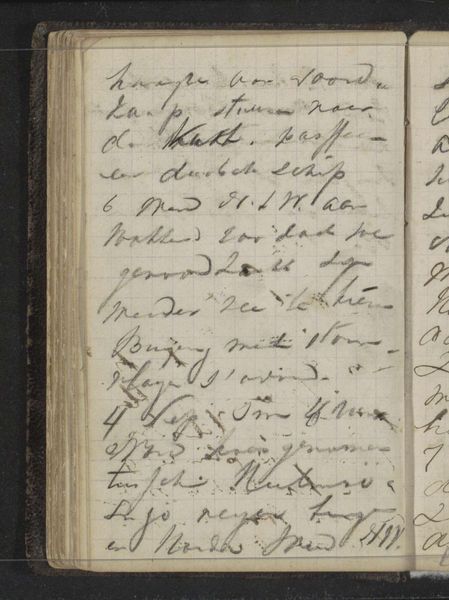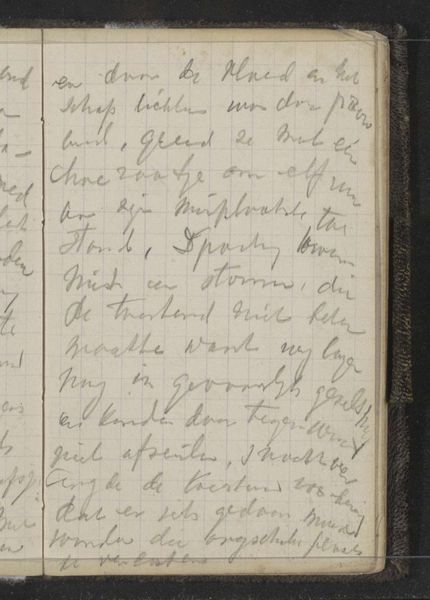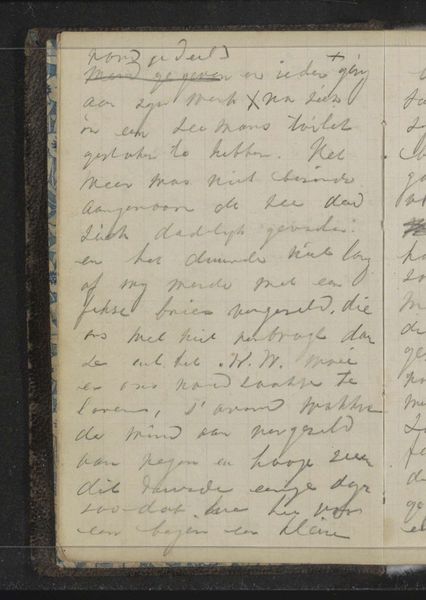
Copyright: Rijks Museum: Open Domain
Curator: This page from Louis Apol's "Reisverslag van medio augustus 1880," possibly from the 1880s, strikes me as particularly intimate. What do you see when you look at it? Editor: I'm drawn to the handwritten text and the small, almost hidden, sketches on the side. It feels very personal, like glimpsing into the artist's private thoughts. What can we learn from something like this? Curator: Absolutely. Consider the period, the late 19th century, when travel was becoming more accessible but still a significant undertaking. Apol, a landscape painter, is recording his impressions, but the act of recording is itself an act of power, framing his experience within a specific narrative. Whose voices are often absent from these travel journals, and how does that absence shape our understanding of the landscape and the culture Apol encountered? Editor: That’s a really interesting point. I guess I was just seeing it as a personal document, but you're right, it's also a product of its time and reflects certain power dynamics. Are the artistic choices typical of the Romanticism style? Curator: Precisely. Romanticism emphasized individual experience and emotion. Notice how Apol mixes text and image, blending objective observation with subjective feeling. The choice of mixed media is critical because that would give a strong, first hand emotional experience to the work. Where do we see that echoed in contemporary art, this impulse to blend personal narrative with broader social commentary? Editor: I'm thinking about artists today who use journaling or sketchbooks as part of their practice, almost as a way to reclaim the narrative, to offer alternative perspectives. Curator: Exactly. By understanding the historical context, we can better appreciate both the beauty and the limitations of works like this, and connect them to ongoing dialogues about representation, identity, and power. Editor: That’s given me a lot to think about. I appreciate you highlighting the social implications of what I saw as a private reflection. Curator: And I value your fresh perspective; it reminds us that art is always in dialogue with the present.
Comments
No comments
Be the first to comment and join the conversation on the ultimate creative platform.
